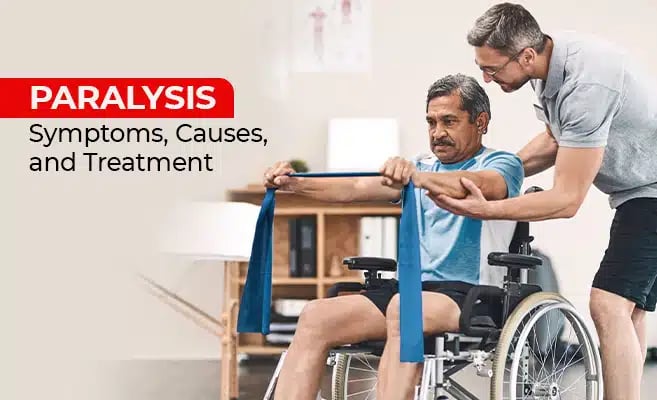Ayurvedic Medicine:A Holistic Path to Paralysis Recovery
HEALTHPARALYSISAYURVEDIC MEDICINE


Paralysis is a challenging condition that affects countless individuals globally. While modern medicine provides treatment options, Ayurveda, an ancient holistic healing system, offers an alternative approach to addressing paralysis. In this blog, we explore the principles of Ayurveda and its potential for providing relief and aiding in the recovery from paralysis.
Understanding Paralysis through Ayurvedic Philosophy:
Ayurveda perceives paralysis as an imbalance in the body's vital energy or doshas, particularly Vata dosha. When Vata dosha becomes disrupted, nerve functioning is impaired, resulting in muscle weakness and paralysis. Ayurvedic treatments focus on restoring balance and harmony within the body to alleviate paralysis symptoms.
Ayurvedic Approaches to Paralysis Treatment:
Panchakarma Therapy: Panchakarma involves specialized cleansing and rejuvenation therapies to eliminate toxins, enhance circulation, and strengthen muscles and nerves affected by paralysis.
Herbal Remedies: Ayurvedic herbs like Ashwagandha, Brahmi, and Guggulu possess neuroprotective properties that aid in nerve regeneration and improve muscle strength. These herbs are often prescribed in customized formulations to enhance the body's natural healing processes.
Ayurvedic Diet and Lifestyle Modifications: Emphasizing a balanced diet and lifestyle, Ayurveda recommends specific dietary choices and lifestyle adjustments, including stress reduction techniques, yoga, and meditation, to support the body's healing process and improve nerve function.
Nasya Therapy: Nasya involves administering herbal oils or medicated powders through the nasal passages, stimulating the nervous system, enhancing blood circulation, and alleviating paralysis symptoms.
Ayurvedic Massages: Therapeutic massages utilizing Ayurvedic oils, such as Maha Narayana Oil or Mahamasha Oil, improve blood circulation, relax muscles, and enhance nervous system function.
Rasayana Therapy: Rasayana herbs and formulations possess rejuvenating properties that strengthen the nervous system, boost immunity, and aid in the recovery process.
Marma Therapy: Stimulating vital energy points known as marma through gentle pressure or massage techniques helps restore energy flow, improve nerve function, and promote healing.
Ayurvedic External Treatments: External therapies like Swedana (herbal steam therapy), Pizhichil (medicated oil bath), and Lepa (herbal poultices) provide pain relief, reduce inflammation, and promote nerve regeneration.
Consultation with an Ayurvedic Practitioner: Seeking guidance from an experienced Ayurvedic practitioner is vital for a personalized treatment plan. They assess individual constitution and suggest suitable remedies and therapies based on specific paralysis conditions.
Integrative Approach: Integrating Ayurvedic treatment with conventional medical care is important. Consultation with both Ayurvedic and allopathic practitioners helps create a comprehensive and individualized approach to addressing paralysis.
Conclusion:
Ayurvedic medicine offers a holistic and natural path to address paralysis. By restoring balance within the body, strengthening the nervous system, and promoting overall well-being, Ayurveda holds potential for providing relief and aiding in paralysis recovery. However, consulting qualified Ayurvedic practitioners and working in conjunction with conventional medical care is crucial. Together, these approaches can offer a comprehensive and personalized solution for individuals seeking paralysis recovery.
©2025
